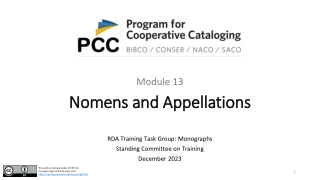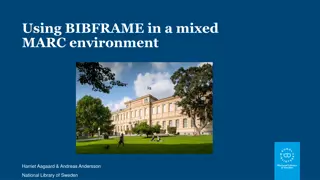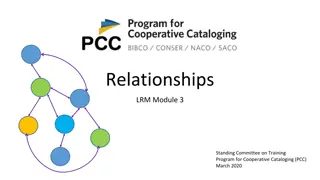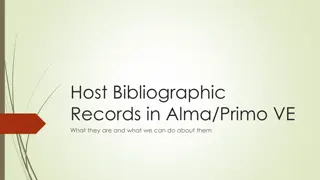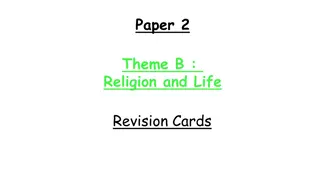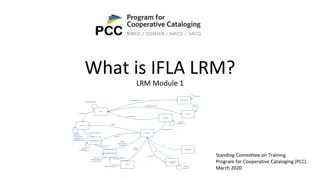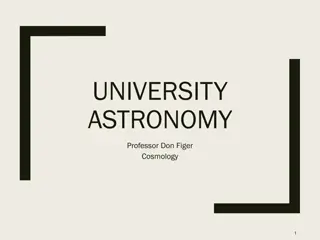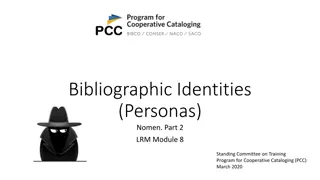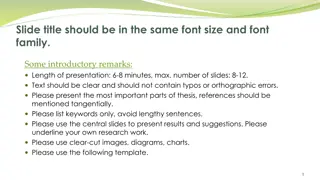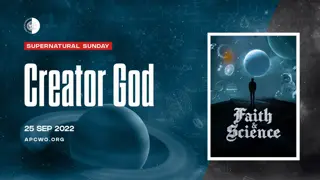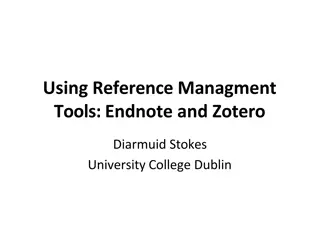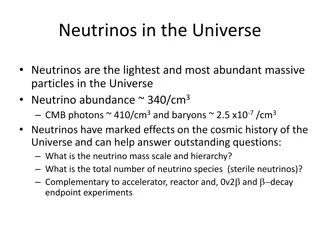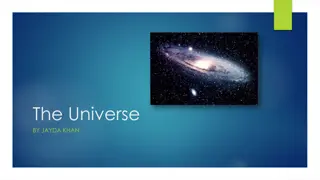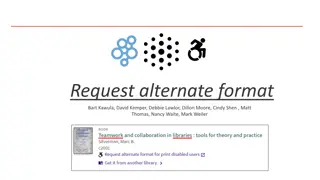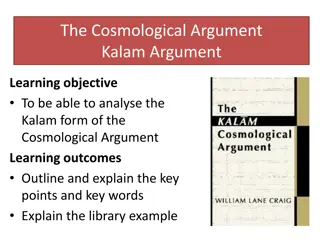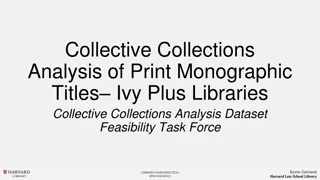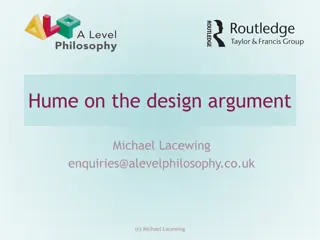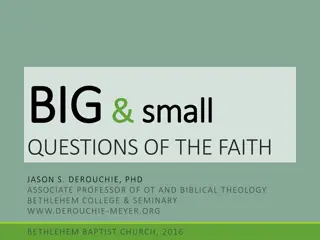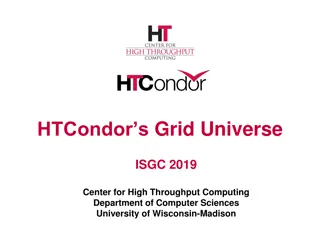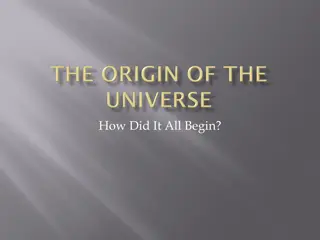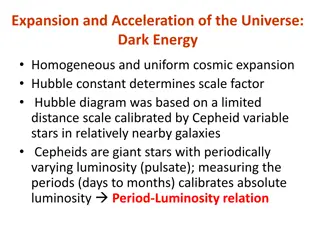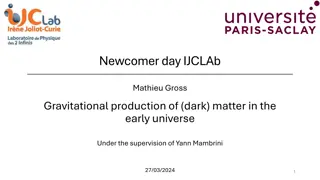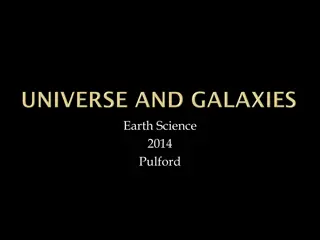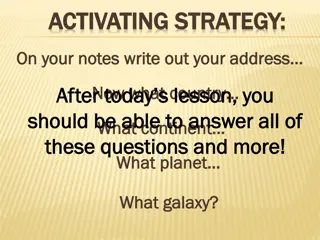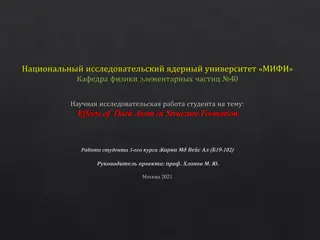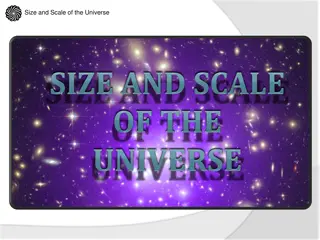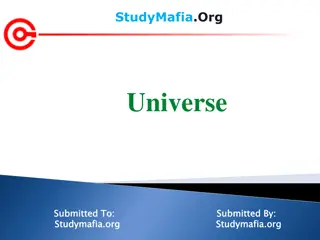textbook$ What Your Heart Needs for the Hard Days 52 Encouraging Truths to Hold On To [R.A.R]
\"[PDF] Download Universe: The Definitive Visual Guide Ebook | READ ONLINE\nFile Link => https:\/\/greatebook.club\/?book=0756698413\nDownload Universe: The Definitive Visual Guide read ebook Online PDF EPUB KINDLE\nUniverse: The Definitive Visual Guide download ebook PDF EPUB book in english langua
5 views • 1 slides
Read⚡ebook✔[PDF] Life in the Universe: Expectations and Constraints (Springer P
\"COPY LINK HERE ; https:\/\/getpdf.readbooks.link\/3319976575\n\nREAD [PDF] Life in the Universe: Expectations and Constraints (Springer Praxis Books) | Life in the Universe: Expectations and Constraints (Springer Praxis Books)\n\"\n
1 views • 6 slides
Understanding Nomen Entity in RDA Training Module
Explore the development of the Nomen entity in RDA training, differentiating nomen and nomen strings, identifying RDA elements for describing a nomen, and examining relationship elements linking RDA entities with nomens. Delve into the origins and attributes of nomens as defined in FRBR and FRAD sta
1 views • 48 slides
Standards and Formats in Bibliographic Information Exchange
International Standard Bibliographic Description (ISBD) defines rules for creating standardized bibliographic descriptions, facilitating information retrieval in libraries. MARC 21 Format for Bibliographic Data serves as a carrier for bibliographic information across various material types. ISO 2709
1 views • 13 slides
Unraveling the Big Bang Theory and the Origins of the Universe
Explanation of the Big Bang Theory by Matthew Kogan, detailing the formation of the universe from a hot, dense mass expanding outward. As the universe cooled, particles formed, leading to the creation of stars and galaxies. The theory explores the imbalance between matter and antimatter, the intense
5 views • 12 slides
Using BIBFRAME in a mixed MARC environment
Delve into the intricate world of utilizing BIBFRAME alongside MARC standards at the National Library of Sweden. Discover the benefits of a BIBFRAME catalog, the challenges of maintaining dual terminology, and the ongoing shift towards linked data integration. Gain insights into cataloging practices
0 views • 10 slides
Understanding Relationships in Bibliographic Universe
Relationships in bibliographic universe connect entities, providing context through entity-relationship models like IFLA LRM. Learn key terms, principles, and diagrams to identify relationships defined in IFLA LRM. Explore domains, ranges, inverse, recursive, and symmetric relationships. Enhance you
0 views • 23 slides
Understanding Host Bibliographic Records in Alma/Primo VE
Explore the concept of Host Bibliographic Records in the Alma/Primo VE system, which address the issue of linking single items to multiple bibliographic records. Learn how host bibs work, their creation during data migration, implications for library services, and the various types of host bibs used
0 views • 24 slides
Exploring Religious Perspectives on Creation and Stewardship of the Universe
Christian and Muslim beliefs on the origins of the universe, the value of the world, and humans' role as stewards are discussed. Both religions emphasize respect for nature, awe at God's creation, and the responsibility to care for the planet for future generations. The concepts of dominion, steward
1 views • 10 slides
Understanding IFLA LRM: A Conceptual Reference Model
IFLA LRM, created by the International Federation of Library Associations and Institutions, consolidates FRBR, FRAD, and FRSAD models into a coherent framework. It aims to structure bibliographic data logically and inclusively, focusing on end-user needs and tasks. The model describes interrelated e
0 views • 11 slides
Exploring Cosmology: A Journey Through the Universe's Mysteries
Delve into the fascinating field of cosmology with Professor Don Figer as he unravels the big bang theory, cosmological observations, and ponders the fate of the Universe. Learn about the origins of cosmology, its elements, history from Aristotle to Newton, and the evolution of our understanding of
0 views • 56 slides
Understanding Bibliographic Identities and Nomen Clusters in Cataloging
Explore the concept of bibliographic identities, factors influencing the use of Nomens for individuals, and the relationship between Nomens and cataloging rules. Learn how one entity may have multiple Nomens and the significance of context in distinguishing between distinct bibliographic identities.
0 views • 12 slides
Journey Through the Cosmos: From Einstein's Theories to the Big Bang
Explore the evolution of our understanding of the universe, from Einstein's initial beliefs in a static cosmos to the groundbreaking discoveries of an expanding universe and the Big Bang theory. Witness how observations of galaxies moving away in all directions and the cosmic microwave background ra
0 views • 13 slides
Environmental Management Thesis at University of Debrecen
Environmental Engineering MSc student at University of Debrecen presents a thesis focusing on environmental management, discussing the problem, goals, material and methods, results, and suggestions. The study covers bibliographic background, legislative aspects, and concludes with practical recommen
0 views • 12 slides
Exploring the Existence of a Creator God and the Design of the Universe
Reflecting on biblical verses and scientific findings, this content delves into the concept of a Creator God and the intricate design of the universe. From the creation of the heavens and the earth to the fine-tuning and complexity of the universe, various perspectives are presented to contemplate t
1 views • 27 slides
Comparing EndNote Web and Zotero Reference Management Tools
Reference management software like EndNote Web and Zotero offer scholars and authors the ability to record and use bibliographic citations effectively. These tools enable easy collaboration, sharing of references, and curating collections of references. While EndNote Web is widely used and integrate
0 views • 22 slides
Insight into Neutrinos: Impacts on the Universe's Cosmic History
Neutrinos, the lightest and most abundant massive particles in the Universe, play significant roles in cosmic evolution. Their effects on large-scale structure, constraints on mass, and implications for fundamental questions provide valuable insights into the Universe's past and future research dire
0 views • 7 slides
The Evolution of the Universe: From Big Bang to Red Shift Analysis
The Universe, as we know it today, started with the Big Bang around 13.5 billion years ago, leading to the expansion of galaxies and the formation of stars, planets, and moons. Edwin Hubble's discovery of galaxies moving away from each other provided key insights into the expanding universe. Astrono
1 views • 13 slides
Visual Highlights from British Library: Pin the Tail on the Donkey & Tillett: Bibliographic Relationships
Explore captivating images showcasing the games "Pin the Tail on the Donkey" and delve into bibliographic relationships with Tillett. Witness the fun and scholarly side of these subjects through vibrant visuals. Perfect for those interested in cultural traditions and library resources.
0 views • 4 slides
Enhancing Library Accessibility: Request Alternate Formats for Print Disabled Users
This project focuses on providing accessible library services for print-disabled users by allowing them to request alternate formats, reducing their workload and promoting awareness of available services. The workflow involves users accessing the library website, logging in with ACE tokens, populati
1 views • 24 slides
Understanding Gravity: The Force that Shapes Our Universe
Sir Isaac Newton's discovery of gravity revolutionized our understanding of the universe, explaining the force that keeps us grounded on Earth and governs the motion of celestial bodies. Gravity, as described by the Law of Universal Gravitation, is an attractive force that acts between all objects i
1 views • 19 slides
Cataloging Training Course Overview: FRBR, RDA, BSR
Delve into a comprehensive cataloging training course covering key topics such as FRBR concepts, RDA cataloging instructions, and BSR standards. Each day focuses on specific learning objectives to enhance your understanding of bibliographic records creation. Embrace the journey of mastering FRBR and
0 views • 84 slides
Understanding the Kalam Argument in the Cosmological Debate
The Kalam Argument, a form of the Cosmological Argument, asserts that everything with existence has a cause, including the universe. Developed by thinkers like al-Kindi, al-Ghazali, and William Lane Craig, it aims to prove that God was the initial cause of the universe. This argument suggests that t
0 views • 17 slides
Collective Collections Analysis of Print Monographic Titles in Ivy Plus Libraries
The Ivy Plus Libraries are embarking on a project to collect, normalize, and analyze bibliographic and holdings records of single-part print monographs added to their catalogs between 2013-2017. The Task Force aims to enhance collaboration, streamline acquisitions, develop purchasing programs, and o
1 views • 6 slides
Mastering APA Style: Annotated Bibliographies & Presentations
Exploring the world of APA style through annotated bibliographies and PowerPoint presentations. Learn how to combine bibliographic references with annotations, summarize sources, analyze their relevance, and reflect on their impact. Enhance your research and writing skills with these essential tools
0 views • 23 slides
Unlocking the Power of Complex Searches with CCL Queries
Construct precise search filters using Common Command Language (CCL) queries to efficiently list records based on specific characteristics. Explore the commands and access points for creating custom search filters with CQL in Polaris PowerPAC. Learn key codes and tips to enhance your search capabili
1 views • 8 slides
Human Disease Symptom Network: Understanding Disease Relationships Through Symptoms and Genes
The Human Disease Symptom Network (HSDN) is constructed using a large-scale medical bibliographic records database to form a network of human diseases based on symptom similarities. By integrating disease-gene associations and protein-protein interaction data, correlations between symptom similarity
0 views • 37 slides
Analyzing Hume's Critique of the Design Argument by Michael Lacewing
The design argument contends that the intricate order in the universe suggests a designer. Michael Lacewing delves into Hume's objections to this argument, highlighting how the analogy between human-made objects and the universe falls short in establishing a similar cause. Hume questions the logic o
0 views • 10 slides
Important Doctrinal Affirmations About the Creation and Purpose of the Universe
Bethlehem's Elder Affirmation highlights the belief in God's creation of the universe out of nothing, with the purpose of displaying His glory for the joy of the redeemed. It emphasizes God's sufficiency, the divine nature of the universe, and the direct creation of Adam and Eve as the progenitors o
0 views • 23 slides
Understanding HTCondor Grid Universe: Job Management Capabilities and Submit File Configuration
Explore the HTCondor Grid Universe, which offers job management capabilities for high throughput computing. Learn about job delegation, fault tolerance, and different back end types supported. Understand how to configure submit files for the Grid Universe and differences from normal HTCondor jobs.
0 views • 31 slides
The Origin of the Universe: A Journey Through Scientific Theories and Discoveries
The concept of the universe's beginning has evolved over time, with early beliefs in its eternal nature shifting to the acknowledgment of a starting point. Pioneering scientists like Albert Einstein and Sir Fred Hoyle contributed to this transformative understanding, challenging traditional views. E
0 views • 27 slides
Understanding the Expansion and Acceleration of the Universe
The expansion and acceleration of the universe, driven by dark energy, is characterized by a homogeneous and uniform cosmic expansion. The Hubble constant, determined by the scale factor, plays a key role. The Hubble diagram, based on Cepheid variable stars in nearby galaxies, uses their varying lum
0 views • 10 slides
Academic Journey in High Energy Physics: Exploring Dark Matter Production in the Early Universe
Mathieu Gross embarks on a Ph.D. journey supervised by Yann Mambrini, focusing on gravitational production of dark matter in the early universe. His academic path includes studies at Ecole Polytechnique, with a Master's in theoretical physics and research on reheating and early universe dynamics. De
0 views • 5 slides
Discovering the Universe: A Journey Through Space and Time
Astronomers explore the vast cosmos, classifying galaxies into Spiral, Elliptical, and Irregular types. Our solar system resides in the Milky Way, a massive spiral galaxy. The accepted theory of the Big Bang explains the universe's origin, supported by Edwin Hubble's observations. Delve into the mys
0 views • 17 slides
The Origin and Evolution of the Universe
Debate in medieval philosophy over the universe's past, Kepler's finite universe theory, Newton's motion principles, and Poe's "Primordial Particle" concept. The Big Bang theory by Georges Lemaître and Edwin Hubble, with Friedmann's dynamic cosmological model. Also covers the Steady State theory an
0 views • 9 slides
Exploring the Fine-Tuned Universe and Belief in God
The discussion delves into the concept of the fine-tuned universe and the belief in God from a Christian perspective. It contrasts reasons for belief with challenges posed by atheistic viewpoints. The content covers responses to skepticism and insights into the Big Bang theory, fundamental forces, a
0 views • 26 slides
Exploring the Formation of Our Universe
Delve into the intriguing theories and concepts surrounding the formation of the universe, including the Big Bang Theory and the development of solar systems. Learn about the positioning of our solar system in the Milky Way Galaxy and understand how scientists believe solar systems formed after the
0 views • 17 slides
Exploring Dark Atom Effects on Structure Formation in the Universe
Overwhelming evidence points towards the existence of dark matter in the universe, with various theoretical models such as OHe atoms and Glashow's EIMP model proposed to explain its nature. Dark OHe atoms, consisting of 2 charged particles bound with primordial He nuclei, offer a unique perspective
1 views • 8 slides
Exploring the Size and Scale of the Universe
Delve into the vastness of the cosmos with this presentation on the size and scale of the universe. From the Earth to galaxies and superclusters, discover the mind-boggling dimensions of celestial bodies and realms. Explore your cosmic address, from local neighborhoods to the vast expanse of the uni
0 views • 22 slides
Understanding the Universe: An Exploration of Celestial Bodies
Scientists study the vast expanse of the universe, birthed from the Big Bang, where stars, galaxies, and constellations exist. Exploring celestial bodies like stars, planets, and moons reveals the wonders of our universe.
0 views • 20 slides
![textbook$ What Your Heart Needs for the Hard Days 52 Encouraging Truths to Hold On To [R.A.R]](/thumb/9838/textbook-what-your-heart-needs-for-the-hard-days-52-encouraging-truths-to-hold-on-to-r-a-r.jpg)
![Read⚡ebook✔[PDF] Life in the Universe: Expectations and Constraints (Springer P](/thumb/21626/read-ebook-pdf-life-in-the-universe-expectations-and-constraints-springer-p.jpg)
